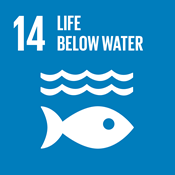About
CAMPUS is a three year project working to combine autonomous observations with computer models for predicting and understanding shelf seas.
Shelf seas are of major societal importance as they provide a diverse range of goods (e.g. fisheries, renewable energy, transport) and services (e.g. carbon and nutrient cycling and biodiversity). A key governmental objective in the United Kingdom is managing seas to maintain clean, healthy, safe, productive and biologically diverse oceans and seas, as evidenced by the obligations to obtain Good Environmental Status (GES) under the UK Marine Strategy Framework, the Convention on Biological Diversity and ratification of the Oslo-Paris Convention (OSPAR). The delivery of these obligations requires comprehensive information about the state of our seas which in turn requires a combination of numerical models and observational programmes.
Computer modelling of marine ecosystems allows us to explore the recent past and predict future states of physical, chemical and biological properties of the sea, and how they vary in 3D space and time. The quality of these forecasts is improved by using data assimilation; the process of predicting the most accurate ocean state using observations to nudge model simulations, producing a combined observation and model product.
Ultimately CAMPUS will demonstrate an improvement in the understanding, uptake and use of integrated model observation products and observational strategies in support of decision-making. Beyond our core focus on bloom induced episodic events, associated biogeochemical cycling and the characterisation of variability in NW European Shelf Seas, our aim is to develop methodologies that are transferable and scalable to other applications (e.g. pollution, using marine litter as an example) and regions (e.g. applicable to Official Development Assistance countries).
Contributing to UN Sustainable Development Goals
The project is also relevant to UN Sustainable Development Goal 14 - Life below water with the specific targets of:
- 14.1 - By 2025, prevent and significantly reduce marine pollution of all kinds, in particular from land-based activities, including marine debris and nutrient pollution
- 14.A - Increase scientific knowledge, develop research capacity and transfer marine technology, taking into account the Intergovernmental Oceanographic Commission Criteria and Guidelines on the Transfer of Marine Technology, in order to improve ocean health and to enhance the contribution of marine biodiversity to the development of developing countries, in particular small island developing States and least developed countries
- 14.5 - By 2020, conserve at least 10 per cent of coastal and marine areas, consistent with national and international law and based on the best available scientific information
